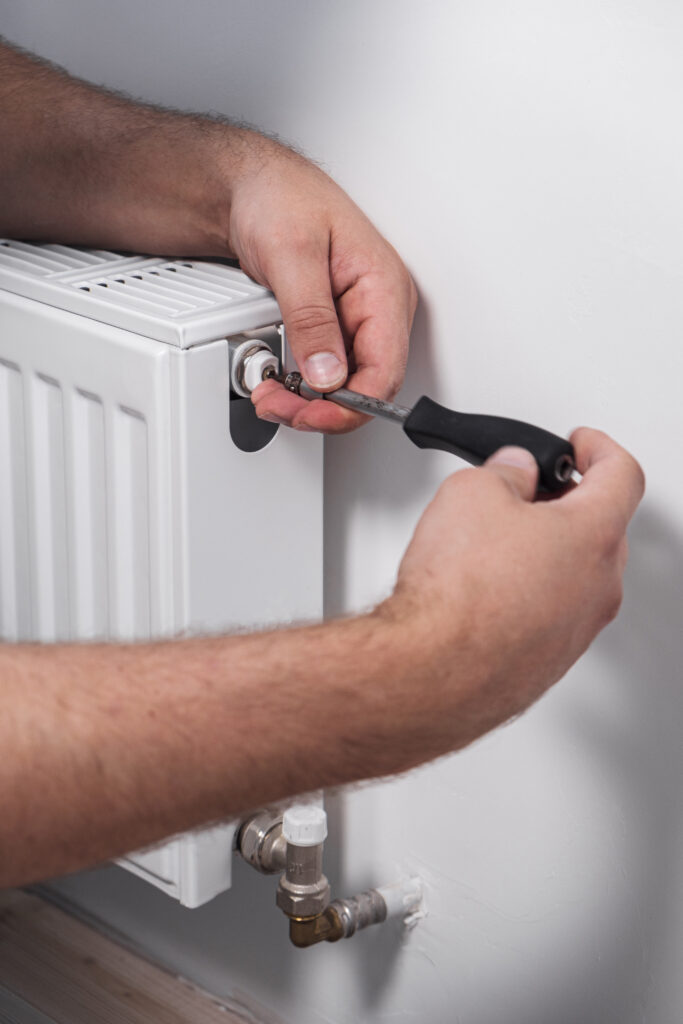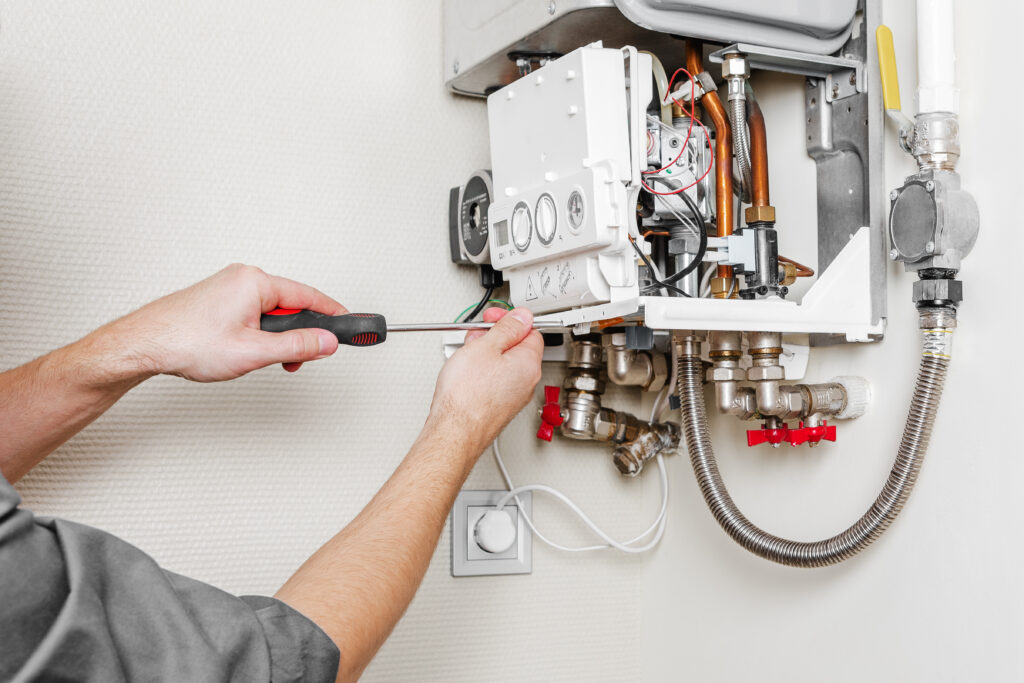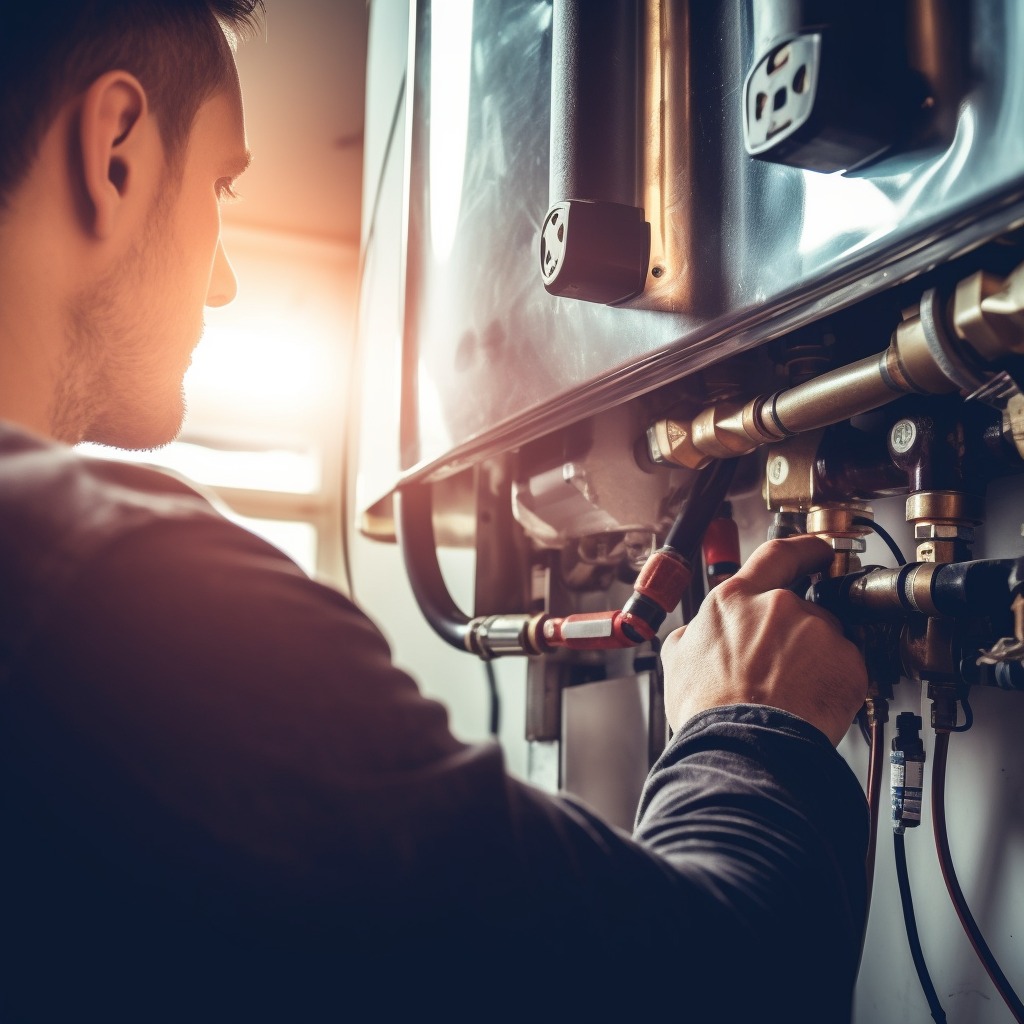
Boilers are the unsung heroes of our homes, silently working to keep us warm and comfortable. However, like all heroes, they need proper care to ensure they continue to perform their duties efficiently. In this comprehensive guide, we’ll dive into the world of boiler maintenance, covering everything from understanding how boilers work to identifying signs of trouble and performing simple fixes.
Unlocking the Mystery of Boilers
At their core, boilers are elegantly simple devices. They heat water using various fuels like gas, oil, or electricity, and then circulate this warm water through your home’s heating system, whether it’s radiators or underfloor heating pipes. This process ensures your home stays cosy even when the weather outside is frightful.
To maintain your boiler effectively, it’s crucial to understand its key components:
- Burner: The heart of the boiler where fuel is combusted to generate heat. Regular cleaning is essential to ensure efficient combustion.
- Heat Exchanger: This component transfers the burner’s heat to the circulating water. Annual checks are necessary to address corrosion or limescale buildup.
- Controls: Thermostats, valves, and programming units regulate the boiler’s operation and heating schedules. Regular interaction with these controls ensures your comfort and helps identify issues.
- Safety Devices: These mechanisms prevent accidents and malfunctions, such as overpressure or gas leaks, ensuring your household’s safety.
Signs of Trouble
Detecting boiler issues early can save you from costly repairs and uncomfortable situations. Watch out for unusual noises, reduced heating efficiency, or any signs of leaks or drips around your boiler.
Boiler Repairs: Troubleshooting Tips
While some boiler problems require professional intervention, there are troubleshooting steps you can take for common issues like low pressure or strange noises. However, never attempt repairs if you smell gas; in such cases, call the emergency helpline immediately.
- Low Pressure: If your pressure gauge reads below one, use the filling loop to add more water to the system. If the pressure continues to drop, call a professional.
- Strange Noises: Banging, gurgling, or whistling sounds are signs of trouble. Consult a professional to diagnose and fix the issue.
- Leaking Pipes: Address leaks promptly by turning off power and water supply to the boiler. Patch up the leak temporarily and call a professional for a permanent fix.
Maintenance Techniques
Regular Servicing: Boilers should be serviced annually by a qualified professional. During the service, the engineer will check for any potential issues and fix them before they become a problem. Regular servicing can also help to prolong the lifespan of your boiler.
Bleeding Radiators: If your radiators are not heating up correctly, it could be due to trapped air. Bleeding your radiators can release the air and allow the hot water to flow freely. To bleed your radiators, locate the bleed valve and use a radiator key to turn it. You should hear a hissing sound as the air escapes. Once water starts to come out, turn the valve back.

Keeping the Boiler Area Clean: The area around your boiler should be kept clean and free from clutter. Dust and debris can build up around the boiler, which can cause it to work less efficiently. Use a vacuum or dustpan and brush to clean the area around the boiler regularly.
Checking the Pressure: It’s essential to check the pressure gauge on your boiler regularly. If the pressure is too low or too high, it can cause issues with the system. If the pressure is too low, you can use the filling loop to add more water. Or if the pressure is too high, you may need to release some water from the system. Any uncertainty on this or regular changes in pressure leave it to a professional.
The Critical Need for Professional Expertise in Boiler Maintenance
Navigating the Risks of DIY Repairs
While a proactive approach to boiler maintenance is beneficial, it’s crucial to recognise the limitations of DIY efforts. Boilers are complex systems, and inexperienced handling or incorrect repairs can lead to disastrous outcomes like gas leaks or fires. The message is clear: if there’s any doubt about a maintenance task, don’t gamble with your safety. Always consult a professional for complex issues.

The Role of Gas Safe Registered Engineers
For intricate boiler repairs and maintenance, Gas Safe registered engineers are indispensable. They offer:
• Extensive Training and Skills: To handle all aspects of boiler maintenance and repair.
• Safety Focus: Ensuring your boiler operates safely and adheres to regulatory standards.
• Efficiency Optimisation: Helping your boiler run efficiently, reducing energy costs.
A Balanced Approach to Boiler Maintenance
Educating yourself about your boiler empowers you to make informed decisions and perform minor upkeep tasks. However, understanding when to call in professionals is just as important. Regular servicing by qualified experts, coupled with basic maintenance like checking the pressure gauge and keeping the boiler area clean, can prevent costly and time-consuming repairs. This approach helps prolong the lifespan of your boiler, ensuring it remains a reliable source of comfort in your home. Remember, always call a qualified professional if you’re experiencing issues with your boiler. By balancing self-reliance with professional support, you can enjoy not just a functional boiler, but also peace of mind and potential long-term savings. Don’t let your boiler give you the cold shoulder; book your boiler service today.
Book Your Boiler Service Today

Remember, a well-maintained boiler is a happy boiler!


